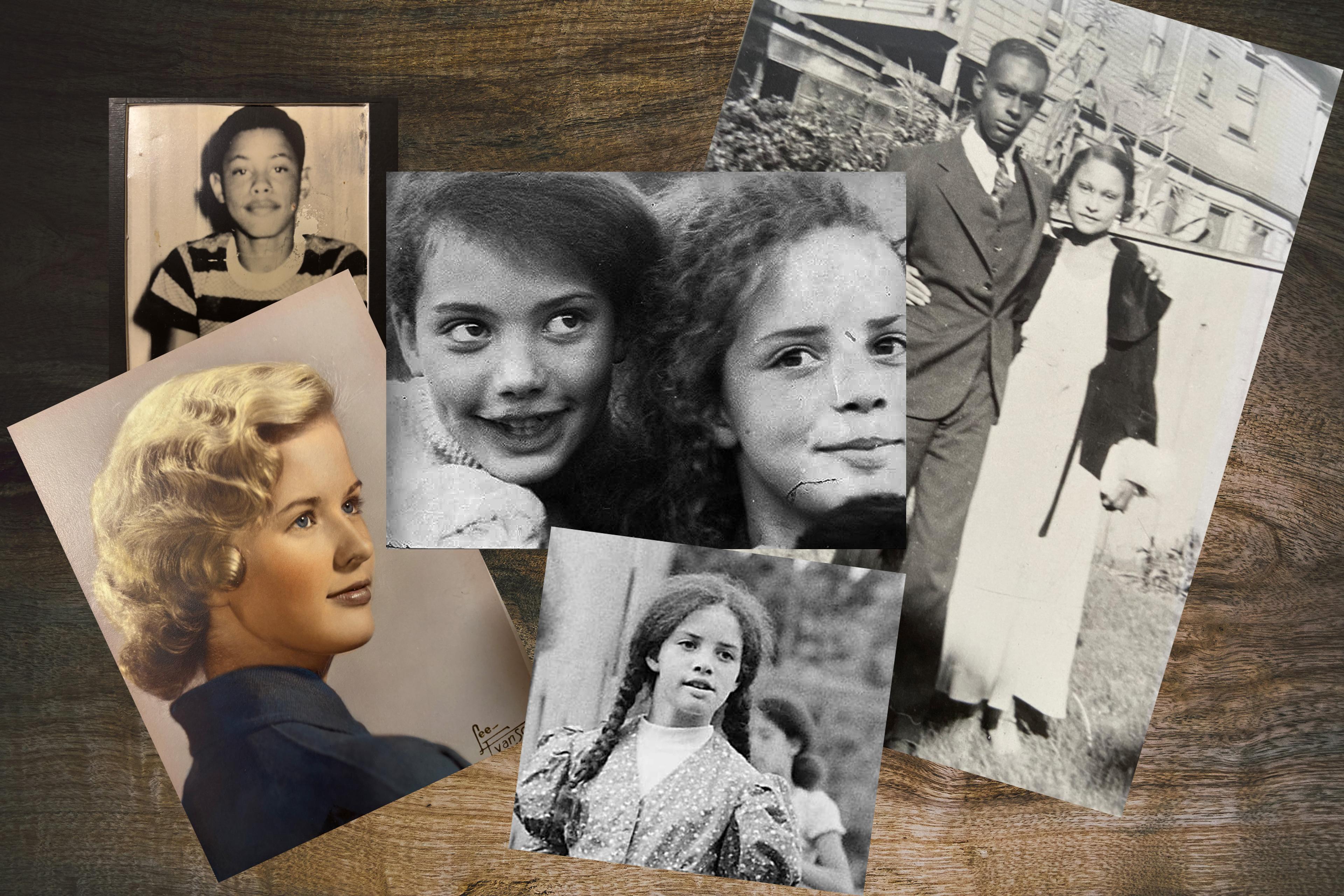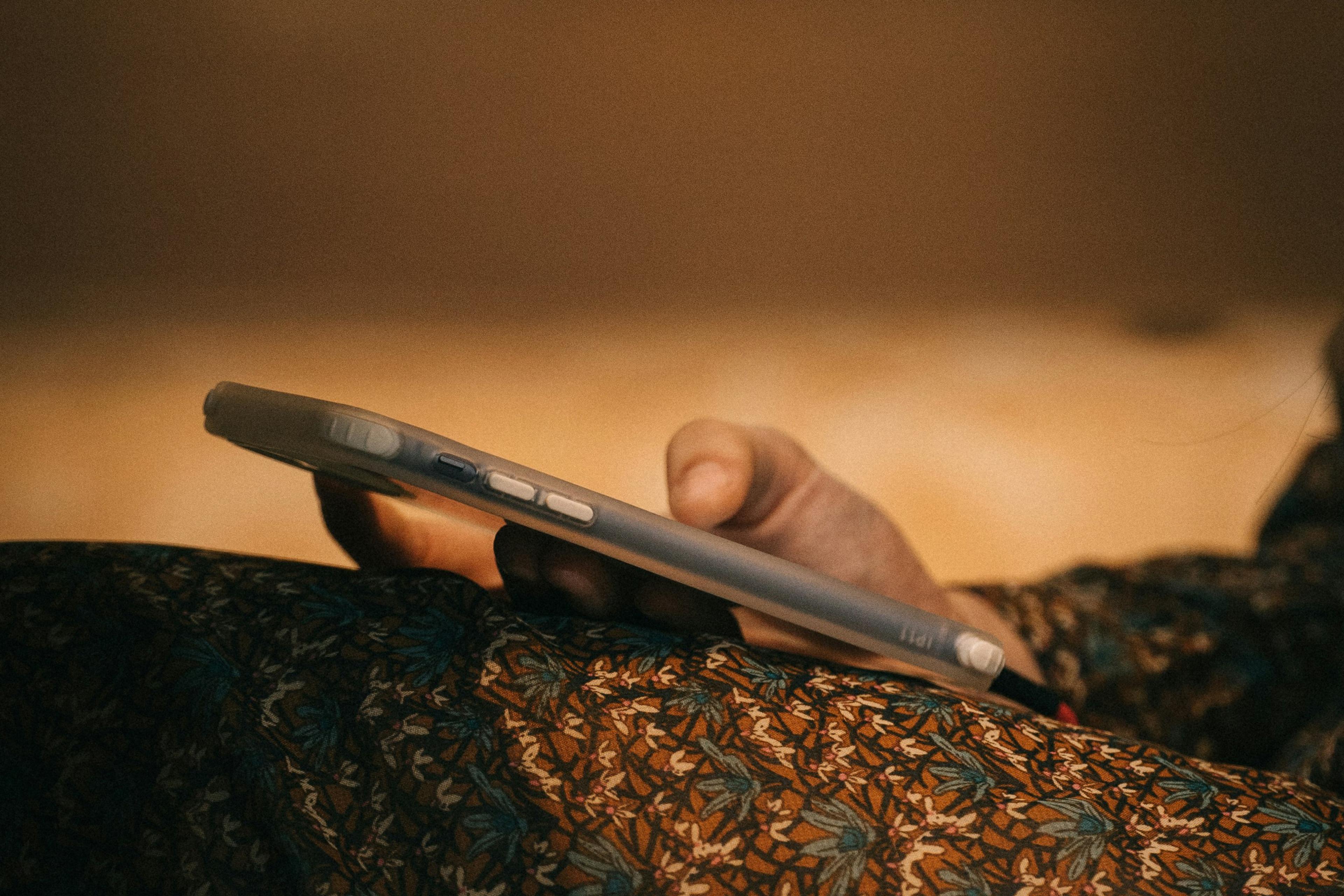I still remember the first time I did it, not the planning of it, but the moment it slipped out of my mouth, fully formed and shockingly convincing. I was standing at the rooftop bar in my new city, waiting for a gin and tonic I couldn’t really afford. The bartender asked: ‘Are you visiting?’ and before I could stop myself, I said: ‘Oh, no, I just moved here from London.’
It wasn’t true. The closest I’d ever been to London was binge-watching Skins in my childhood bedroom back in rural Georgia – the state, not the country – a world away from the kind of people who vacationed in Europe. But the moment the words landed, something shifted: the bartender’s posture softened, he smiled like I’d told him a charming secret, and he threw in a slice of cucumber like he thought I’d expect it.
I wish I could say I was drunk or dared into it by friends. It was late spring, I was 25, newly uprooted from the small, stubborn town I’d grown up in, living in a gentrified corner of a city I never thought would be mine. I’d arrived on a bus with one suitcase and a nervous hope that no one would figure out how out of place I really was.
At first, I told myself it was a joke. A bit. A test of my own nerve. It wasn’t the first lie I’d told about myself. I’d previously shaved years off my childhood stories, translated them into something more palatable at college parties when people asked where I was ‘from’. But this was different. This was audible, daily, impossible to walk back if I slipped.
I told one person, a new coworker named Cass – exactly the type of middle-class artsy transplant who could afford to live here without splitting a basement room with two other people. She laughed so hard she choked on her latte. ‘You’re unhinged,’ she said, delighted. ‘No one will believe it.’
Every time it worked, I felt a quiet power humming under my ribs
But they did. People leaned in. They asked about my ‘uni’, about how ‘dreadful’ the weather must have been. They asked what brought me here, and I’d spin tales about an American partner who never existed, a long visa battle that wasn’t real. At bars, the accent made me fascinating. At work, it made me seem, I don’t know, smarter? More polished? Like I’d read books I hadn’t.
I knew it was ridiculous. And, yet, every time it worked, I felt a quiet power humming under my ribs. Like I’d stumbled on a cheat code for a game I didn’t know I was losing.
If you didn’t grow up around people who talk about ‘accent privilege’, you probably think I’m being dramatic. But if you did – if you know how the wrong vowels can plant seeds of suspicion in a job interview, how the dropped ‘g’ at the end of a word can mark you as lazy, how certain speech can mean you’re treated like you don’t know how to speak at all – then you’ll understand.
My real accent isn’t thick or dramatic. It’s just ordinary. Flat. The kind you hear all over the Midwest and the South of the United States, a mix that doesn’t point to one city but still carries a quiet stamp of class and place. The way you speak can tag you not just by region but by race, education, money – all the unspoken things people listen for when they decide who you are. Mine always read ‘working class’ to people who wanted to read it that way. Even back home, I’d trained myself to smooth it over, to round out my vowels, to pause before certain words, to catch myself if I slipped and said ‘ain’t’ by accident. Where I grew up, that word alone – ain’t – could mark you as someone who’d never get out.
I got invited to dinner parties I’d never have been welcome at otherwise
But the British accent wasn’t just smoothing over. It was a whole other identity, a cocoon of fantasy so complete I felt protected inside it. I wasn’t the one getting sized up anymore; it was this clever, charming Londoner instead. The absurdity was part of the thrill. Every time someone bought it, I felt this electric mix of shame and power.
The performing didn’t stay fun forever. There were tiny cracks in the act that widened as the months went by. Like when I’d been drinking and my tongue forgot which words belonged to which life. Or when Cass started introducing me as ‘my British friend, listen to her talk!’ as if I was a party trick, a novelty to parade around.
Worse were the people who believed it so completely they projected other fantasies onto me. I got invited to dinner parties I’d never have been welcome at otherwise. I got flirted with by people who’d never have noticed me if I’d used my real voice. One guy, let’s call him Graham, told me he loved how ‘worldly’ I was. I smiled and asked him about his gap year in Thailand, nodding like I’d been there too.
Inside, I could feel something rotting. It’s one thing to play pretend for strangers, another to do it with people who think they care about you. At night, alone in my room, I’d practise the accent to keep it sharp. Sometimes I’d record myself speaking both ways: my real voice, then the one I’d invented. The difference made me nauseous.
The unravelling came as so many reckonings do: over an awkward dinner. Graham and I had been seeing each other for a few weeks. He invited me to his friend’s birthday. It was a group of well-dressed people in a restaurant that made me feel like I needed to apologise just for breathing too loudly. They asked polite questions about my ‘move from the UK’, and I told the same lies I’d told before.
Then, halfway through a story set in Manchester, I slipped. I don’t remember the word – maybe ‘water’, maybe ‘better’, something with a crisp T I usually remembered to soften. But it came out American. Worse, it came out of me.
Graham looked at me like he was seeing me for the first time or maybe realising he never had
A guy at the end of the table, someone’s cousin visiting from New York, caught it immediately. He tilted his head. ‘Wait, where’d the accent go?’
The whole table paused. I laughed it off, tried to fake a cough, to slip right back into character. But the cousin wouldn’t let it go. He mimicked the sound back to me. ‘Say it again, you sounded just like us.’
Everyone else laughed politely, but Graham looked at me like he was seeing me for the first time or maybe realising he never had. The rest of the meal was a blur. I went home early. He texted me the next day to ‘talk’. We never saw each other again.
I’d love to tell you I stopped the accent immediately, that shame snapped me out of it like a rubber band to the wrist. But it wasn’t that simple. It was more of a slow moulting, like peeling off a costume I’d grown attached to, even when I knew it was suffocating me. I’d read somewhere that, when you lie, your body knows. It holds tension. Your throat tightens; your shoulders hunch. I hadn’t noticed how stiff my body had become until I stopped. One morning, weeks after the dinner, I woke up and realised I hadn’t used the fake accent in days. I said good morning to my roommate in my real voice, and she didn’t flinch. Neither did I.
The thing I still struggle with is this: the accent wasn’t me, but the way people treated me when I used it revealed things that were true. That I was clever. That I was worth listening to. That I could be more than the box my real accent put me in. Dropping the act didn’t mean I stopped wanting those things. It just meant I had to find another way to believe I deserved them.
I don’t fake accents any more, although sometimes, when I’m tired or nervous, my vowels still slip sideways. But I hold on to the lesson I learned from those six months: that language isn’t just something we inherit; it’s something we wield. It can be a weapon, a shield, a secret handshake – or a trap. When I catch myself trying to soften my voice to sound more ‘neutral’, I pause. I try to speak in a way that feels like home instead. Sometimes that sounds like a girl from nowhere special, who came to the city with a cheap suitcase and an unremarkable story. But she’s mine. And her voice is enough.
If I could talk to that version of me now, the one standing at the bar with an eye-wateringly expensive gin and tonic, about to say something she didn’t mean, I wouldn’t stop her. I’d just whisper that it won’t be the accent that changes her life. It’ll be the moment she finally trusts her real voice to do it instead.








